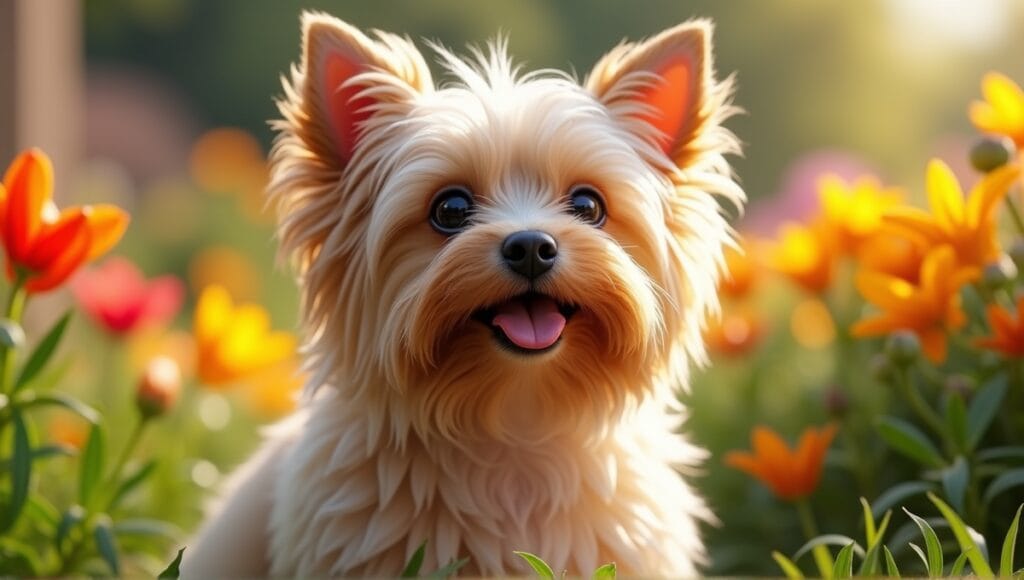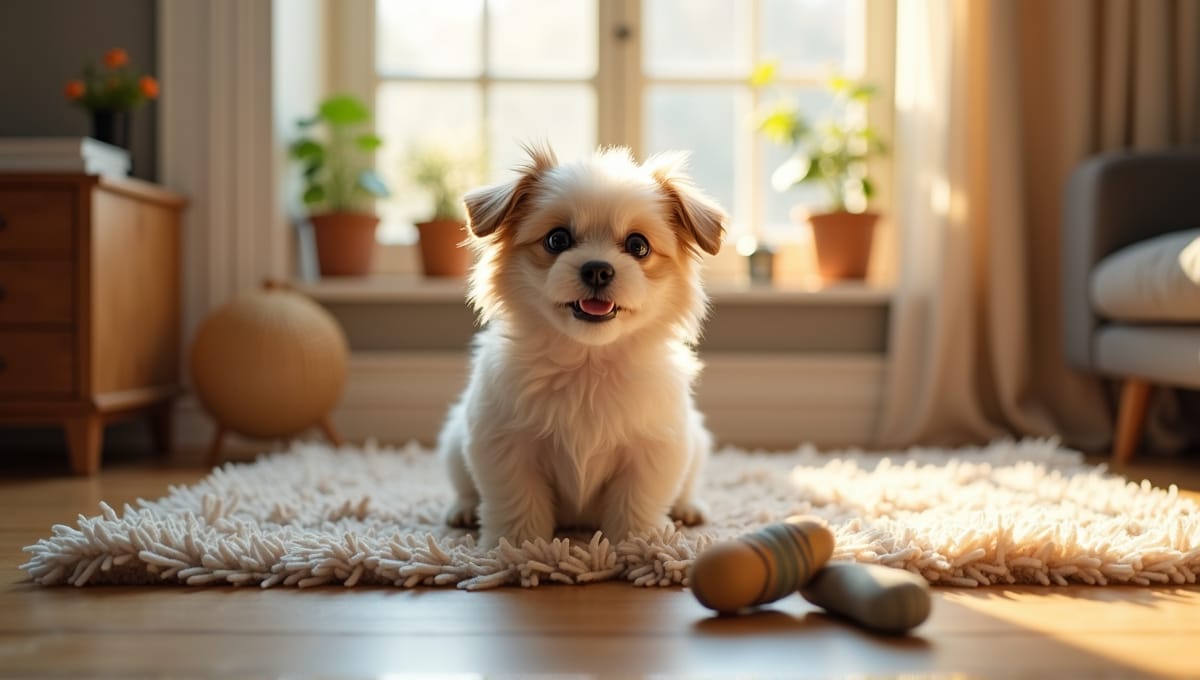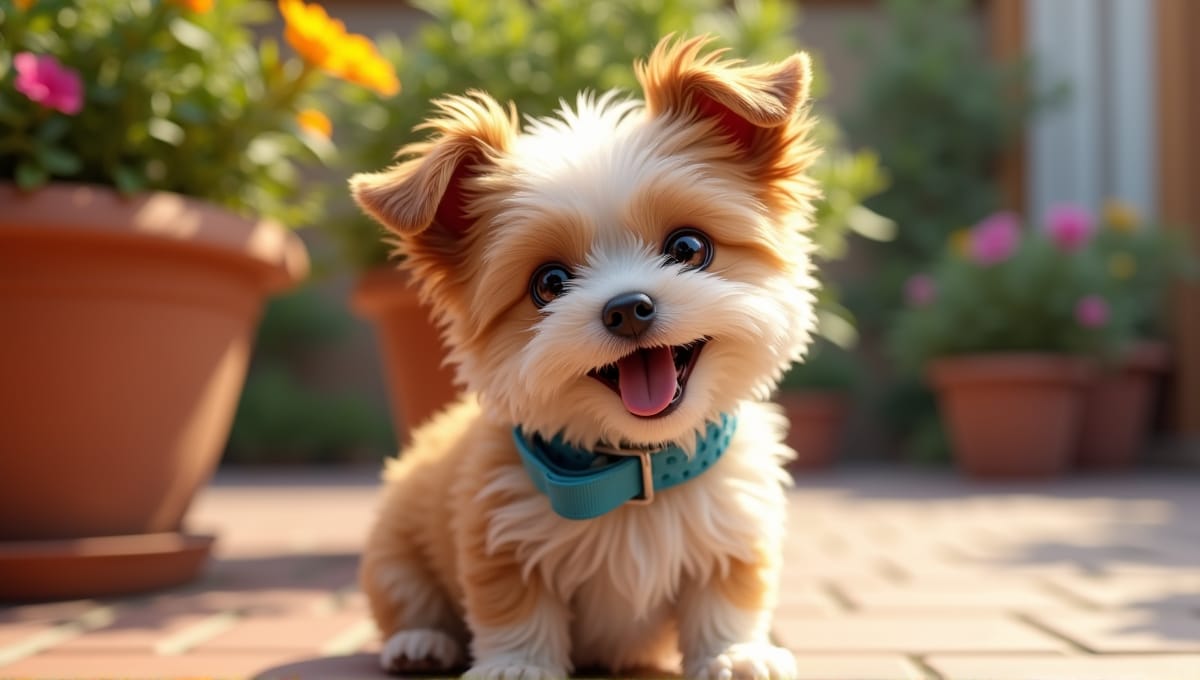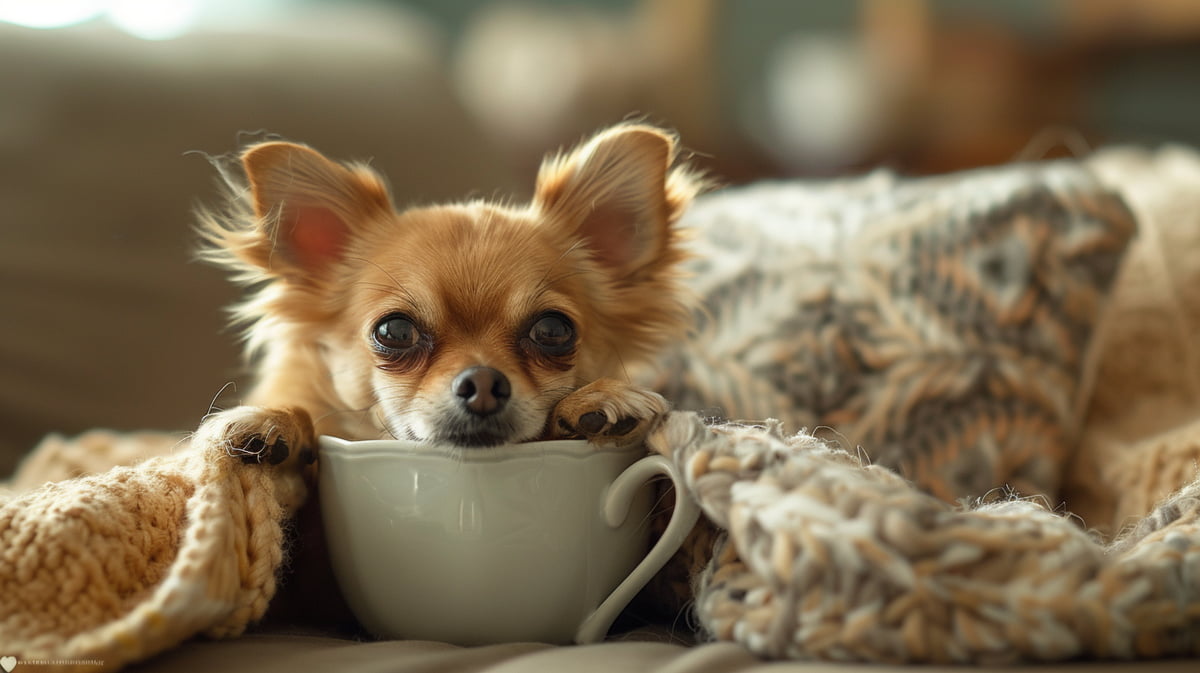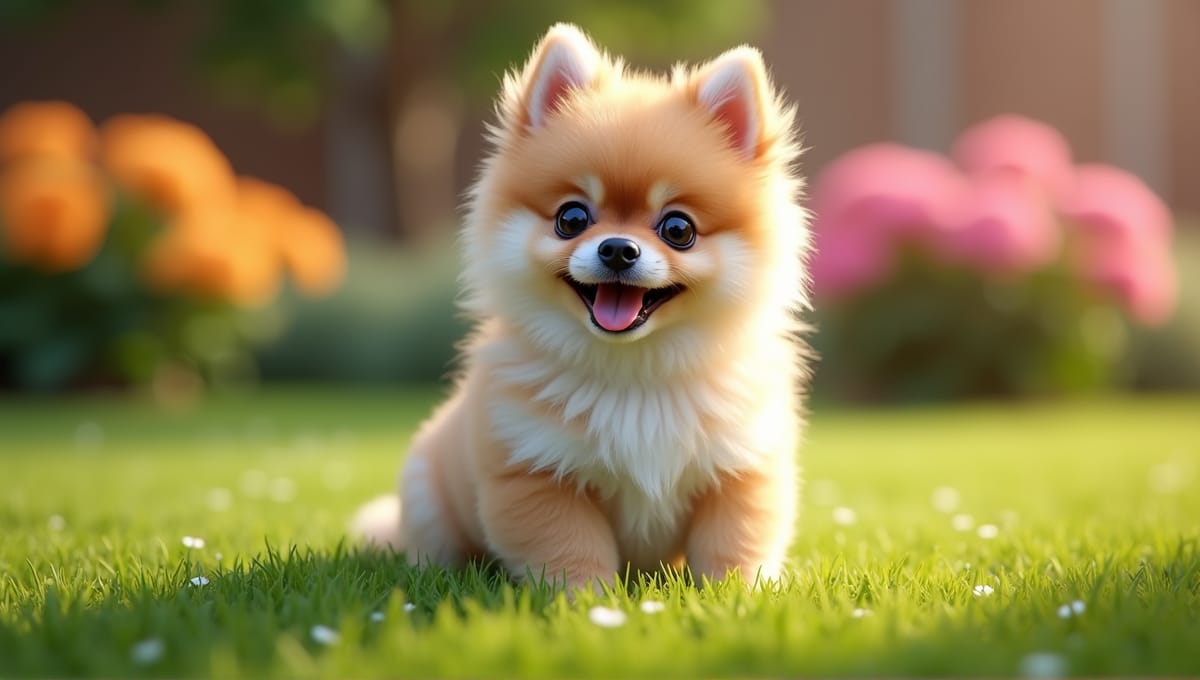Small long haired dogs are very cute pets. However, they’re not the best fit for everyone. I’ve been a dog lover all my life, and I’ve witnessed many people become infatuated with these little dogs without thinking about the practicalities of owning one. Learn about their specific requirements before selecting one as your pet. Is a small long haired dog the right choice for you?
Popular Small Long-Haired Dog Breeds

There are several different small long-haired dog breeds, and each has something unique about them that might make them the perfect option for you. I’ve trained many of these breeds, so I can provide some insights.
Shih Tzus are very loving dogs. They’re typically:
- Very friendly
- Low energy
- Flexible in various living situations
Yorkshire Terriers are feisty and courageous. Maltese dogs are gentle and playful. Lhasa Apsos are confident and independent. Pomeranians are spirited and attentive. Havanese are friendly and eager to please.
All of these breeds have long hair that requires regular maintenance. They’re usually good with families and do well in an apartment. You’ll find they’re all excellent loyal and loving dogs. If you’re looking for a smaller companion, you might also be interested in cutest small dog breeds that are perfect for various lifestyles.
Size Specifications of Small Long-Haired Dogs
Small long-haired dogs are tiny. They generally weigh between 5 and 20 pounds and stand about 8 to 14 inches tall at the shoulder. These dogs typically live 12 to 15 years if you take care of them properly.
Here’s a quick size comparison of some popular breeds:
| Breed | Weight (lbs) | Height (inches) |
|---|---|---|
| Shih Tzu | 9-16 | 9-10.5 |
| Yorkshire Terrier | 4-7 | 7-8 |
| Maltese | 4-7 | 7-9 |
| Lhasa Apso | 12-18 | 10-11 |
| Pomeranian | 3-7 | 6-7 |
| Havanese | 7-13 | 8.5-11.5 |
Their small size makes them great for apartments and other small living spaces. They’re also easy to pick up and they don’t require a large yard for exercise. If you’re interested in small white dog breeds, some of these long-haired breeds come in white varieties as well.
Grooming Requirements for Small Long-Haired Dogs
Grooming is essential for small, long-haired dogs. They require daily brushing to avoid matting and tangles, and we recommend professional grooming every 6-8 weeks. This typically costs $50-90 per session.
You’ll also brush your dog at home at least 2-3 times per week. As for grooming tools, you’ll need a:
- Slicker brush
- Fine-toothed comb
- Detangling spray
- Scissors (for trimming)
Regular grooming is the key to a healthy coat and less shedding. It’s also a great opportunity to bond with your dog. You’ll become familiar with your dog’s body and catch any health issues early.
So, keep grooming in mind when considering a long-haired breed. It’s an ongoing cost, but it’s necessary for your dog’s health and happiness.
Temperament and Personality Traits
Small long-haired dogs with big personalities. They’re usually very friendly and loyal to their owner. These breeds are some of the most friendly with both humans and other pets.
Energy levels can vary. For example, Yorkies are quite high energy, while Shih Tzus are more relaxed. Most are intelligent and train easily with positive reinforcement.
They do tend to bark a lot, making them excellent watchdogs despite their small size. They also do well in virtually any living situation, and they have excellent confidence despite their small size.
They depend on human companionship. As a result, they often create strong bonds with the family. You should be prepared to spend a lot of time with them, as they are happiest when surrounded by people. For those interested in dogs with a working background, small hunting dogs can also make great companions with the right training and care.
Health Considerations for Small Long-Haired Breeds
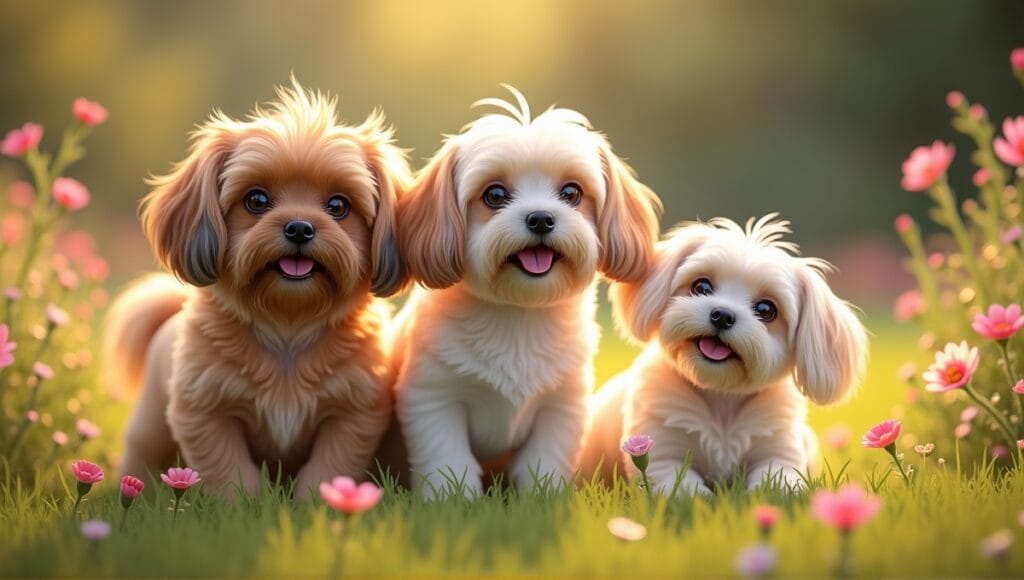
Small long-haired dogs can experience specific health problems, and knowing about them allows you to take better care of them. The most common health issues include:
- Dental problems
- Patellar luxation
- Tracheal collapse
- Eye issues
Regular visits to the vet are essential to diagnose health problems early. Additionally, you’ll need to be diligent about their dental care, as small dogs are prone to dental issues like tooth decay and gum disease.
Preventative healthcare is essential. Ensure they are up to date on vaccinations and parasite prevention, monitor their weight to prevent obesity (which exacerbates joint problems), and feed them a high-quality diet appropriate for their size and energy levels.
Eye care is also important, as some of these breeds are prone to tear stains. Wiping your dog’s face daily can prevent irritation. With proper care, you’ll be amazed at how much happier your dog is.
Suitability for Different Lifestyles
Small long haired dogs are versatile. They’re a great choice for apartment living. These breeds don’t require large yards. A short daily walk and indoor play are often sufficient.
They’re excellent family dogs. Most are good with kids as long as they’re socialized from a young age. They’re also great options for elderly owners. Their small size makes them easy to handle.
Exercise requirements vary, but most only need:
- Short daily walks
- Indoor play
- Mental stimulation from toys and training
These dogs are sensitive to the weather, so they may need a sweater in cooler weather and extra care in hot weather. Be mindful of the weather in your area when allowing them outside.
They’re also very adaptable to various household types, making them a great choice if you have a busy household with plenty of people. They’re comfortable in most living situations as long as they receive some love and attention. If you’re looking for a small dog with a bit more fluff, you might want to explore small fluffy dog breeds for additional options.
Genetic Factors in Small Long-Haired Dogs
Genetics is the main reason why these dogs have long hair. The FGF5 gene controls the length of their hair. This gene alters the hair growth cycles, allowing the hair to grow longer.
Many of them have a double coat, which helps them regulate their body temperature. Again, this is a throwback to their original breeding purpose. Many were originally bred to work in colder climates, while others were bred as lapdogs for nobility.
Their size is also genetic. They are the size they are thanks to many generations of selective breeding. Despite their small size, you’ll often notice that these dogs still have many of the same characteristics as their larger ancestors.
Understanding these genetic factors is also helpful for knowing how to take care of them. Understanding why they have long hair and a double coat and are sensitive to temperature will help you provide better care for them.
Care Tips for Managing Long Hair

Long hair requires more maintenance. These are the primary brushing tips:
- Slicker brush for general detangling
- Fine-toothed comb for a more detailed brush
- Start brushing at the skin and work your way out to avoid matting
- Brush gently to avoid irritating the skin
Use a mild shampoo specifically designed for long hair breeds to bathe your dog every 3-4 weeks or as needed. Rinse them very thoroughly to prevent any skin problems.
When it comes to tangles, start with small sections and work through them very carefully. You can also use a detangling spray to help loosen the tangles. If they’re seriously matted, you may need to find a professional pet groomer to help.
In the summer, brush more often to remove loose hair, and in the winter, avoid over bathing as the hair provides insulation. Most coat problems can be avoided with regular brushing.
Environmental Considerations for Small Long-Haired Dogs
Small long-haired dog breeds can be a bit delicate. They don’t do well in extreme temperatures and will likely need a sweater or coat in cold weather. You’ll also need to carefully monitor them in hot weather to ensure they don’t overheat.
These breeds are primarily indoor dogs and often aren’t happy unless they can be near their families most of the day. If you plan to keep them outside, they’ll require close supervision, as their small size makes them susceptible to predators.
While they still need exercise, most of these breeds don’t require much space. Indoor play and short walks are generally sufficient. You should also be conscious of their energy levels, as they can quickly become tired.
To remain healthy, these dogs need to be kept at a healthy weight. As small dogs, it’s easy for them to become obese, which can cause a variety of health issues. Therefore, measure their food, avoid giving them too many treats, and ensure they get regular exercise. Keeping these dogs in shape significantly improves their quality of life and how long they will live.
In Summary
Small long haired dogs are a wonderful combination of adorable and affectionate. They’re suitable for many different lifestyles, though they do require regular grooming and health maintenance. These dogs do very well with love and attention, making them excellent dogs for apartments, though they still require some exercise and mental stimulation. Of course, each breed has its own specific characteristics.
Select one that aligns with your lifestyle, and you’ll have a fluffy companion you can’t live without. With the right care, these little dogs will be a source of happiness for years.


